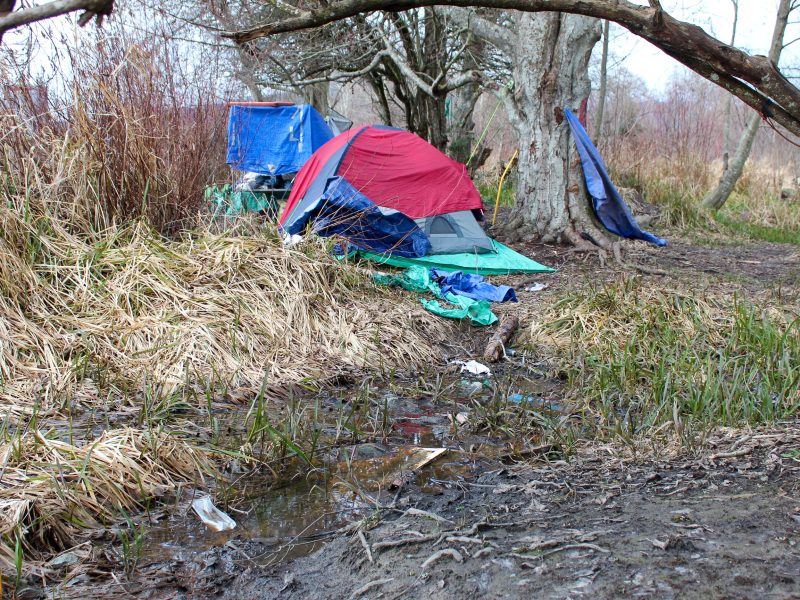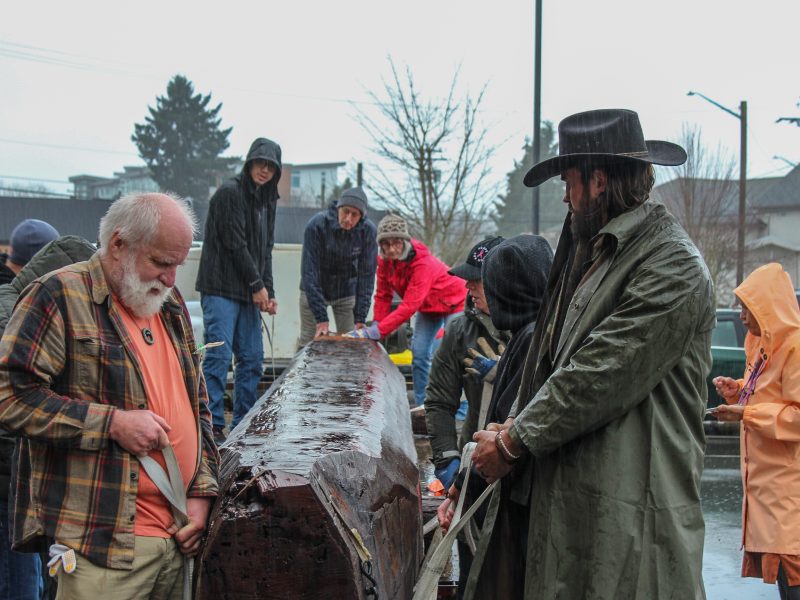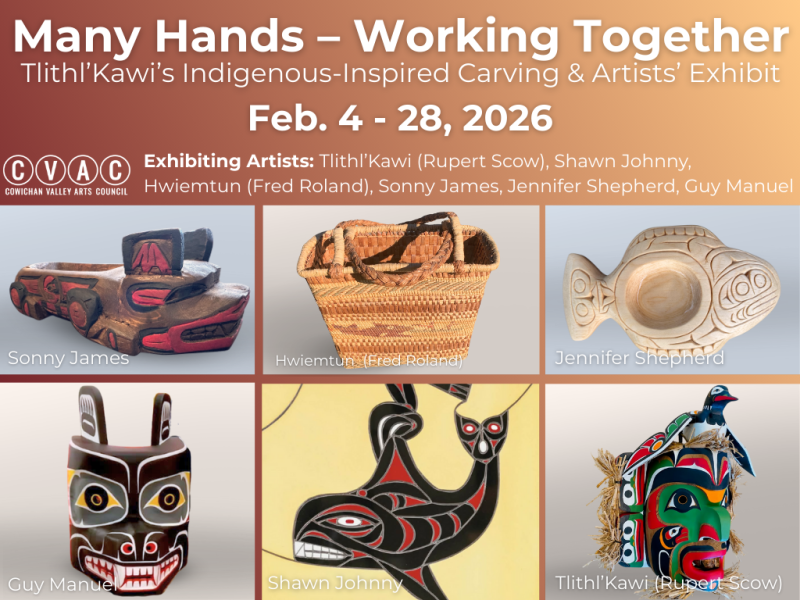
This article discusses the abuses and ongoing impacts of Canada’s residential “school” system. Please take care and reach out if you need support. The Indian Residential School Survivors Society crisis line is available any time at 1-800-721-0066.
Seventy-one-year-old Coast Salish Elder Raymond Tony Charlie would sit alone in the early hours of the morning to write. After years of talking about his experiences at residential “school,” Charlie — a member of Penelakut Tribe — took to writing about them with the goal of publishing a book.
“I would sit there sometimes at three [or] four o’clock in the morning all by myself,” Charlie said to a group of students and community members at Vancouver Island University’s Cowichan Campus. “Because once you start to remember the abuse, it’s difficult. It’s hard.”
Charlie ended up writing over 400 pages about his experiences, which were whittled down into his new book, In the Shadow of the Red Brick Building. At an event hosted by Vancouver Island University on Sept. 26, he read from his book and spoke about how sharing his story over the years has helped him heal. He also reminded those in attendance of their responsibility to learn about this history and share it.
“This book was an accomplishment for me,” Charlie said, taking a long pause before he spoke. “A lot of our people were told as children, ‘you’re dumb, you’re not going to learn much, you’re slow to learn all those things.’ So I thought it’s important that I don’t live there … I want to be strong. I know I don’t have much time left on this earth but I will continue to talk. I will continue to share.”
Talking as a form of healing
The VIU event also featured a film screening of Kuper Island: Return to the Healing Circle, a 1997 documentary in which survivors of Kuper Island Residential School return to the “school” grounds 20 years after its closure to begin their healing journey.
Charlie attended the “school” on Penelakut Island in the 1960s. He’s featured in the film, alongside his brother James, speaking about the abuse they faced there. He’s in his mid-40s in the film and says that between the ages of 16 and 36, he didn’t speak to anyone about what happened, keeping it in his soul.

At the event, Charlie said he tried to forget the sexual abuse he faced at residential “school” by turning to alcohol. But speaking in the film was the beginning of his sharing journey, one that pulled him out of a dark place and on a path to healing.
“A lot of elders still have a hard time. They can’t talk about it. We have all those bad memories of sexual and physical abuse so they won’t say one word,” Charlie said. “Initially I used to break down a lot crying talking about all the abuse I had. But I don’t want to be there anymore. I don’t want to cry. I want people to learn, to understand, and I want people to support our people.”
Healing through talking is a prevalent theme in the film as well. It opens with images of survivors drumming and singing through tears on the grounds of the “school.” As the film progresses, it becomes clear that for some survivors, talking about what they faced helped them move forward. New generations of youth are also seen in the film as they learn to talk about their struggles. The documentary ends with powerful drumming and singing as survivors push a cement sign from the “school” into the ocean.
“A lot of our people don’t have a voice … They can’t talk about their experiences with abuse. I share my experience to help people understand what occurred at residential ‘school,’” Charlie said. “Talking has helped me to heal. It has helped me move into the next stage.”
Charlie’s openness to talk about his experiences at residential “school” with students and the community has been impactful for others, too. His testimony about the abuse he faced helped to convict Roman Catholic brother Glenn Doughty, one of few abusers to face charges for crimes against children in the residential “schools.”
Last year, he joined Elder Florence James, also from Penelakut Tribe, to host a virtual listening circle on healing from residential “schools.” He also spoke on a CBC podcast called “Kuper Island” that tells the story of four people who attended Kuper Island Residential School.
Read also: By listening ‘you can help us with the pain’
Charlie has even taken his talks to TikTok, connecting with nearly 15,000 followers as he shares his story on the social media platform. Some of his videos have hundreds of thousands of views.
“I picked up a lot of friends and a lot of the young ones say ‘Thank you uncle, thank you grandpa, thank you for sharing your story,’” Charlie said. “People say it’s helping others understand about residential schools. It’s important for me to keep sharing because they encourage me to share.”
Learning for the children and for the survivors
Charlie spoke of his five grandchildren and the love he has for them. He said he wants them to understand that they are important and have worth. He spoke of the strength and pride that he wants his grandchildren to carry and read an excerpt from his book written for them. In it, he shared his hopes and dreams for his people, which start with healing.
“I encourage you to learn what you can. It’s important to survivors,” Charlie said to the room. “I’m 71 years old but I think I will just keep talking to help people understand where we are and what our lives are like.”

Nadine Cruickshanks, a professor with the VIU faculty of education who hosted the event and who knows Charlie well, offered some reflections about the responsibility others have to learn. She noted that Charlie speaking about his grandchildren was a sign that he sees an opportunity for change to happen for them.
“Each and every one of us has a powerful role to play in shifting the narrative and thinking ahead to those grandchildren and what different stories and experiences we can offer them so they are whole,” Cruickshanks said, addressing the room. “[This is by] breaking stereotypes, and examining our own biases and assumptions of what we see out there instead of judging.”
As folks think about Sept. 30, the National Day for Truth and Reconciliation, Cruickshanks reminded attendees that the day means something different for everybody. She said for her, it is a day of learning but for someone like Charlie, it can be a day about healing.
“We have a responsibility,” Cruickshanks said as she turned to Charlie. “You coming here reminds us of our responsibility and I thank you so much for that.”



